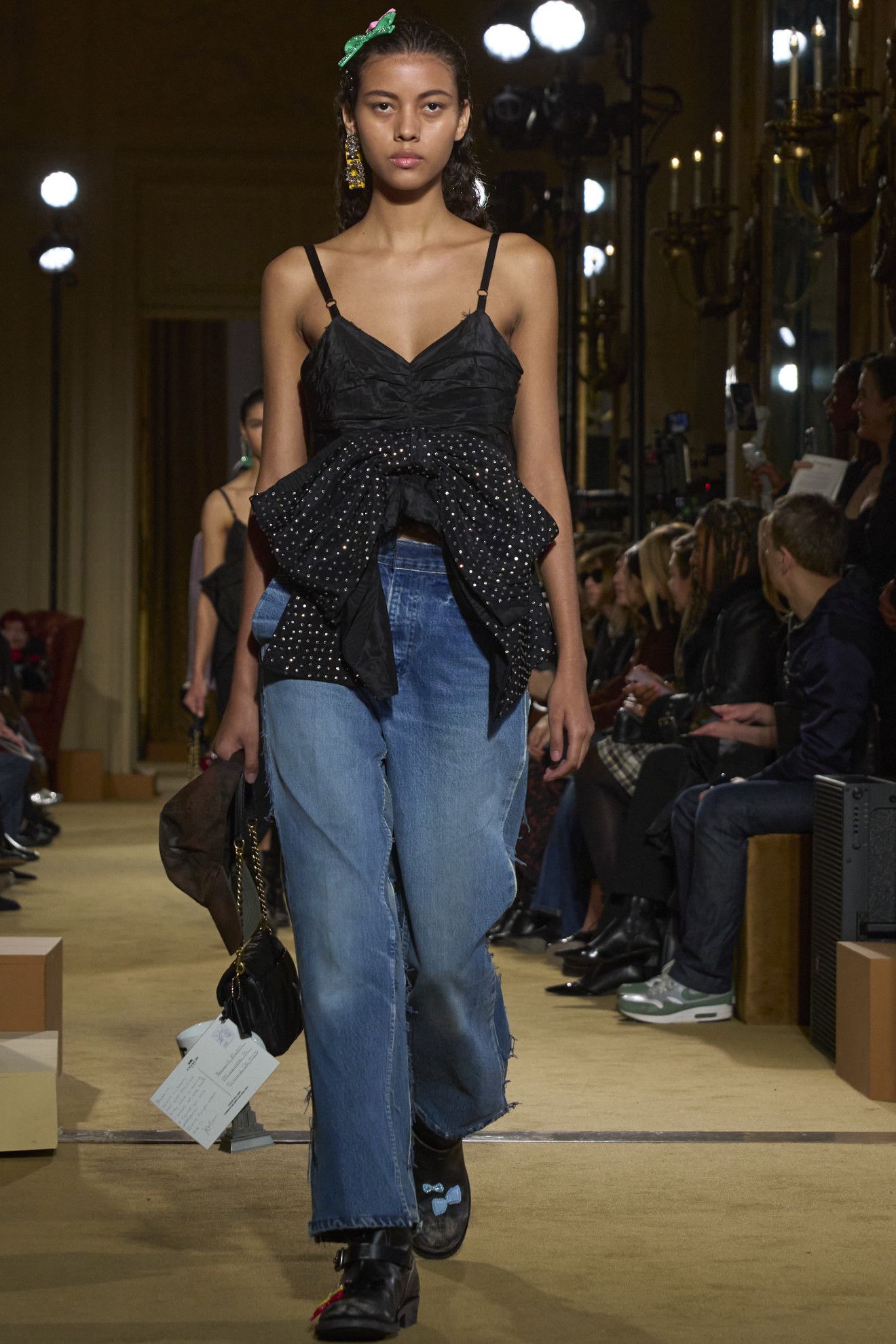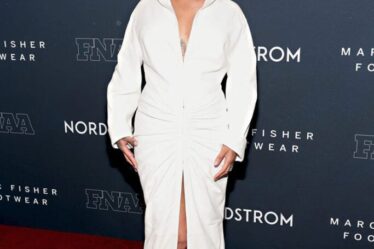
What is the point of catwalk shows, now that social media serves up fresh trends to everyone’s phone every day of the year? “[It] has to be about sustainability”, says Stuart Vevers, the British designer who has spent the last decade bringing fashion credibility and a new point of view to the once-staid American handbag brand Coach.
Fashion weeks hand the microphone of the cultural conversation to designers, and Vevers wants to use his airtime “to look at where sustainability can be scaled. Where we can scale is where we can have an impact.”
The elegant Central Park townhouse and celebrity-packed front row were standard-issue New York fashion week fare for a $5 billion designer brand, but nothing else about the show was.
The leather of the chunky biker boots was scuffed, not as a fashion statement but because that’s what boots look like when made from upcycled leather.
Vevers was especially pleased with jeans sculpted into this season’s wide-leg silhouette using pieces of old denim. “Denim is a really exciting opportunity for repurposing post-consumer clothing – basically, pieces at the end of their life. There are people out there collecting and sorting post-consumer denim, so we now have the contacts to be able to work at scale,” he said before the show.
“I don’t think it’s OK any more for me as a designer to leave sustainability as something for factories and suppliers to worry about. Fashion starts with design, so the change has to come from designers.”
Which means that instead of sketching an outfit and then looking for sustainable fabrics to make it with, Vevers starts with the most sustainable fabrication options – such as pieces of old jeans – and figures out what the most beautiful way of using them is. Cotton is sourced to support regenerative farming projects.
“Not everything will work but I try to explore ideas without fear. Fear was holding me back – I was worrying: am I going to be judged, if it doesn’t work? – so I realised I just had to try anyway.”
Vevers, who was born in Yorkshire, credits a decade in his adopted home city, where he lives with his husband and their three-year-old twins River and Vivienne, with firing a “genuine passion” for sustainability.
“I’m not interested in escapism, I’m interested in the future. I spend a lot of time looking forward. There’s something about New York that does that to you.”
New York has also made him a romantic, especially when fashion week falls around Valentine’s Day. “There’s something about people falling in love in New York that feels extra special. This city is the perfect setting for love stories.”
The show began with Audrey Hepburn singing Moon River; those scuffed boots were worn with upcycled taffeta skirts in ballet slipper pink. On the mood board for this collection were two iconic New York couples: Carolyn Bessette-Kennedy and John F Kennedy, and Lenny Kravitz and Lisa Bonet.
The late Bessette-Kennedy’s signature blend of minimalism with apple pie Americana has made her a classic reference in New York fashion. But to Vevers, whose first job was at Calvin Klein when Bessette-Kennedy was a publicist at the brand in the 1990s, “a time that felt like a real-life mirror to the films of Nora Ephron I find so emblematically New York”, the homage is personal. “I worked with her. I would see her in the corridors.”
The inky camisoles and understated tailoring that nodded to her wardrobe were given a Gen-Z twist. Many of the models wore a hoodie as a layer, a true-to-life touch for a generation that rarely leaves the house without one.
“I think about youth culture a lot because I think we all learn and grow from what younger generations are into,” Vevers said. “They have a truly inclusive mindset, whether it’s about race or body shape or gender, and I love that.”



